Find Help
More Items From Ergsy search
-
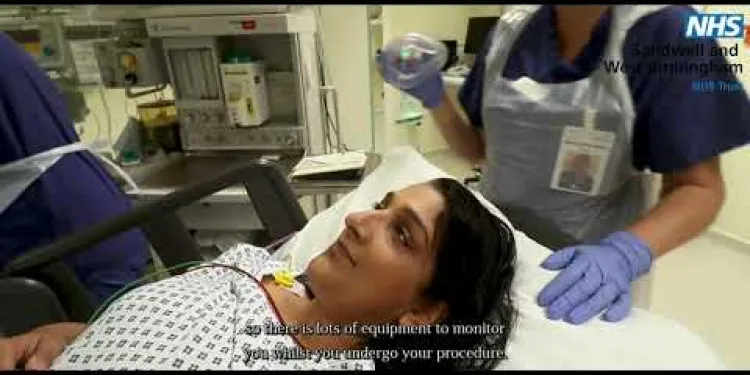
What to expect when visiting our hospitals for surgery | Theatres
Relevance: 100%
-
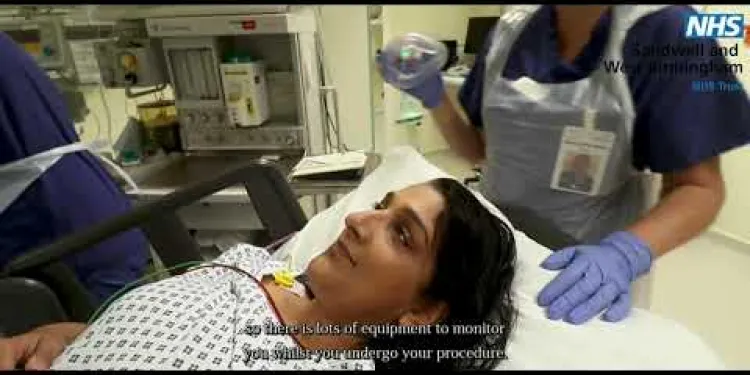
What to expect when visiting our hospitals for surgery | Theatres
Relevance: 99%
-
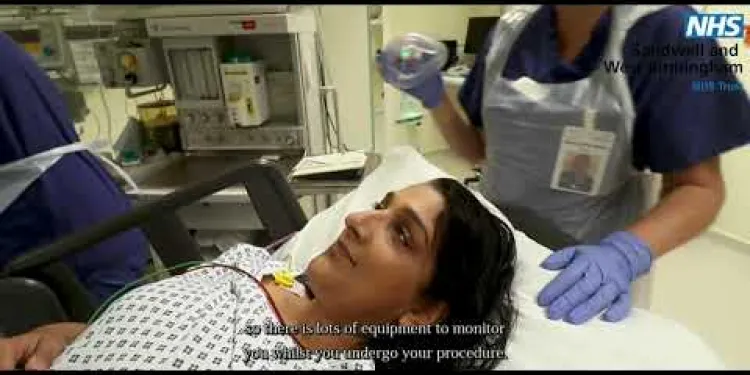
What to expect when visiting our hospitals for surgery | Theatres
Relevance: 97%
-

Undergoing day case surgery at University Hospitals Bristol
Relevance: 69%
-
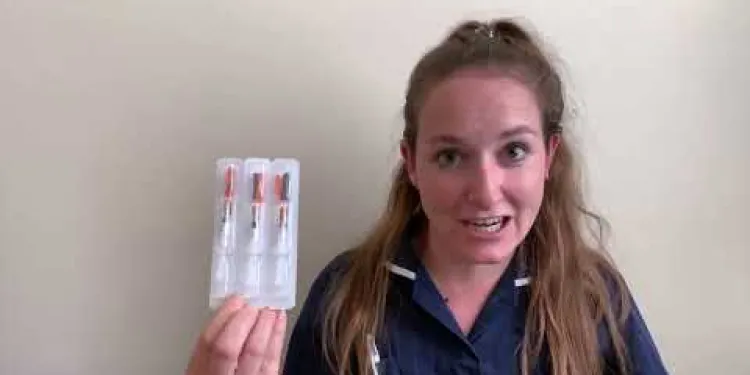
Bariatric Surgery - What to expect when you come to hospital for your operation.
Relevance: 64%
-
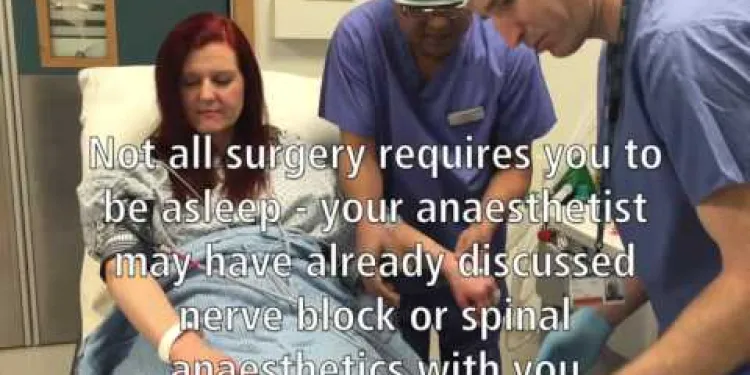
Your Operation at East Surrey Hospital
Relevance: 57%
-

What factors affect the waiting time for my surgery?
Relevance: 57%
-

Are waiting times for operations the same across all hospitals?
Relevance: 54%
-
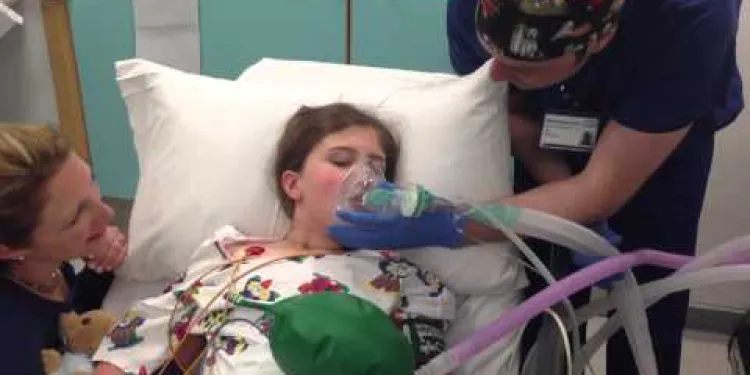
My General Anaesthetic: What's Going To Happen? Sarah's Story at Worcestershire Royal Hospital.
Relevance: 50%
-
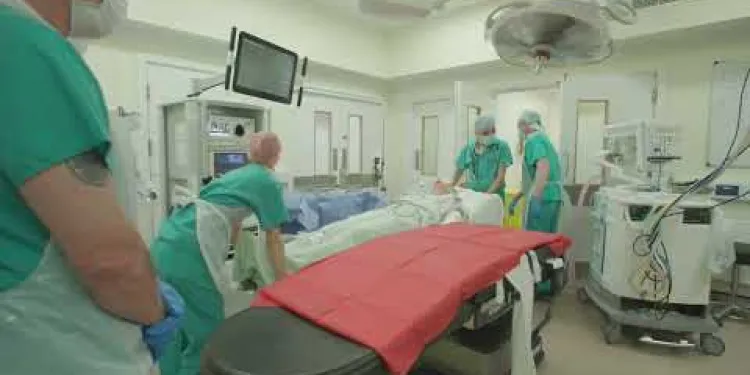
Prostate Surgery
Relevance: 49%
-

How long does a hip replacement surgery take?
Relevance: 48%
-
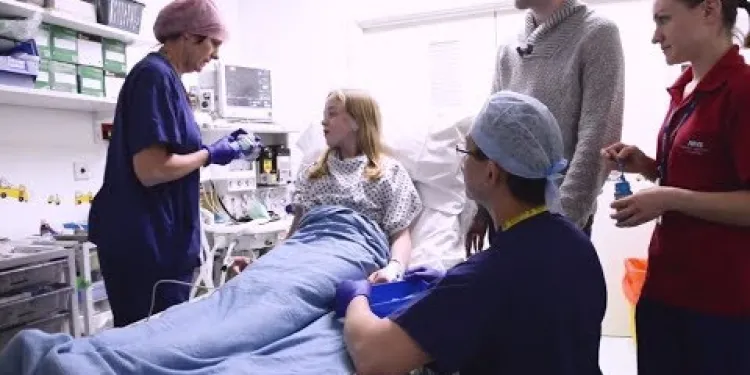
Having an operation in Oxford Children's Hospital with YiPpEe
Relevance: 47%
-

How much does hip replacement surgery cost in the UK?
Relevance: 45%
-

Experiencing delirium after surgery
Relevance: 45%
-

Who should I contact for questions about surgery waiting times?
Relevance: 44%
-

How do AI-assisted robotic systems enhance lung cancer surgeries?
Relevance: 44%
-
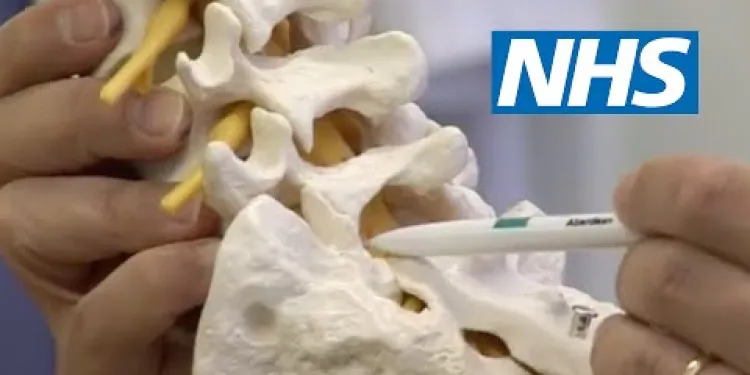
Lumbar surgery | NHS
Relevance: 44%
-

Inpatient Surgery at North Bristol NHS Trust
Relevance: 42%
-

How do I prepare for hip replacement surgery?
Relevance: 42%
-

Delirium: A Patient Story at Leicester's Hospitals
Relevance: 42%
-

Is there a national database for checking waiting times for surgeries?
Relevance: 42%
-
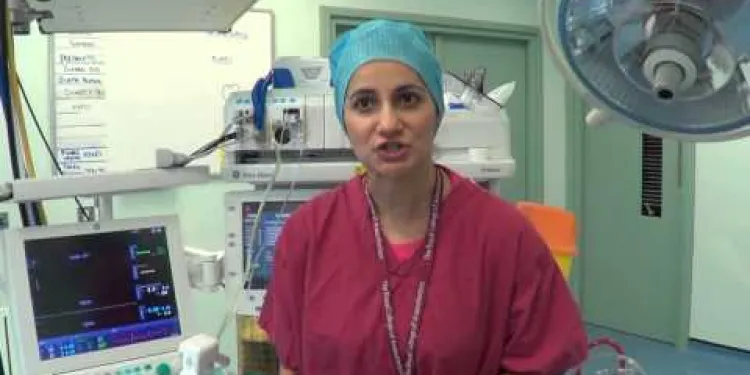
Enhanced Recovery After Surgery in Forth Valley
Relevance: 42%
-

How does surgery treat prostate cancer?
Relevance: 41%
-

How can I advocate for a shorter wait time for my surgery?
Relevance: 41%
-

Evidence-Based Interventions: haemorrhoid surgery
Relevance: 40%
-

Do private hospitals have shorter waiting times for operations?
Relevance: 40%
-

On the day of your cataract surgery
Relevance: 39%
-

How long will I stay in hospital after a C-section?
Relevance: 39%
-
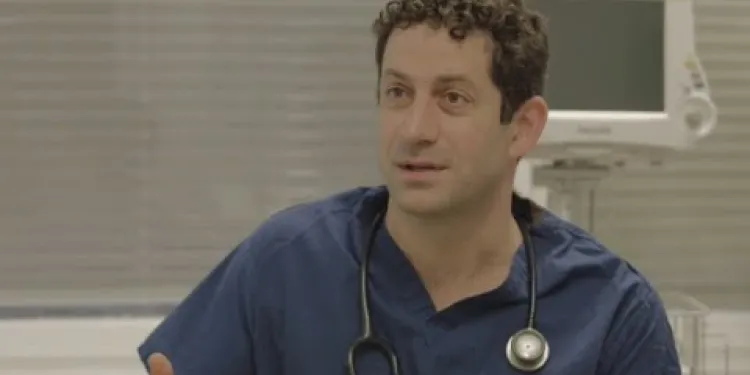
What to expect on the day of your operation
Relevance: 39%
-

Will changing my surgery date impact my waiting time?
Relevance: 38%
-

Weight Loss Surgery
Relevance: 38%
-

Will language barriers be an issue in EU hospitals?
Relevance: 38%
-
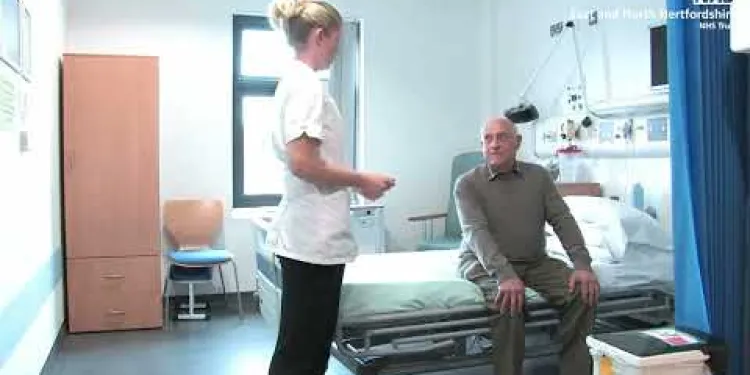
A journey to hip surgery
Relevance: 38%
-

How do I know if my surgery is considered elective or urgent?
Relevance: 37%
-

What is minimally invasive hip replacement surgery?
Relevance: 37%
-

Thyroid eye disease. Squint surgery - The operation
Relevance: 37%
-

Is surgery always required to treat flesh-eating disease?
Relevance: 37%
-

What are the side effects of prostate cancer surgery?
Relevance: 37%
-
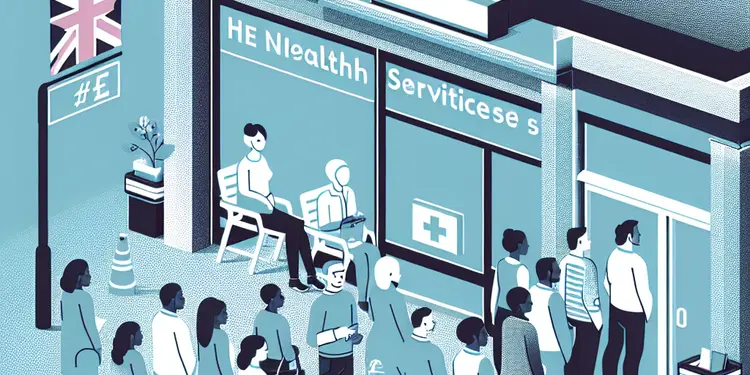
How can I find current waiting times for operations in my local hospital?
Relevance: 36%
-

Is surgery necessary for Crohn's disease?
Relevance: 36%
What to Expect When Visiting Our Hospitals for Surgery
Pre-Operative Assessment
Before your surgery, you will have a pre-operative assessment to ensure you are fit for the procedure. This may involve blood tests, ECG, and a detailed medical history. The pre-operative team will discuss any medications you are taking and provide instructions on how to prepare, which may include fasting.
On the Day of Surgery
On the day of your surgery, arrive at the hospital at the instructed time. Upon arrival, you will check in at the admissions desk and be directed to the surgical ward. A nurse will take your vitals and provide you with a gown to wear. You will have the opportunity to meet the surgical team, including your surgeon and anesthetist, who will explain the procedure and address any last-minute questions or concerns.
In the Operating Theatre
Once all preparations are complete, you will be taken to the operating theatre. The operating theatre is a sterile environment, equipped with advanced medical technologies to ensure your safety. The anesthetist will administer anesthesia to ensure you are comfortable and pain-free during the operation. The surgical team will continuously monitor you throughout the procedure.
Post-Operative Care
After surgery, you will be moved to the recovery room where trained nursing staff will monitor your vital signs and manage any pain or discomfort. The length of time spent in recovery can vary, but the team will ensure you are stable and comfortable before transferring you back to the surgical ward or discharging you home, if applicable.
Discharge and Aftercare
If you are being discharged on the same day, you will receive detailed instructions for home care, including how to manage pain, care for your surgical wounds, and recognize signs of complications. Follow-up appointments will also be scheduled to monitor your recovery progress. If an overnight stay is required, our dedicated team will continue to provide attentive care and support until you are ready to go home.
Support and Communication
Our hospitals are committed to providing comprehensive support throughout your surgical journey. Should you have any questions or concerns at any stage, do not hesitate to contact our team. We also ensure clear and effective communication with both you and your loved ones to ensure a smooth and stress-free experience.
Your safety, comfort, and well-being are our top priorities when visiting our hospitals for surgery. Rest assured, you are in capable and caring hands.
What to Expect When Visiting Our Hospitals for Surgery
Before Your Surgery
You will have a check-up to ensure you are healthy and ready for surgery. This might include blood tests and heart checks. The nurses and doctors will talk about medicines you take. They will also tell you how to get ready, which might include not eating for a while before surgery.
On the Day of Surgery
Come to the hospital at the time your doctor told you. Check in at the front desk and go to the surgery section. A nurse will check you and give you special clothes to wear. You will meet the doctors and nurses who will do the surgery. They will explain what will happen and answer your questions.
During the Surgery
You will go to an operating room. This room is very clean and has a lot of special medical tools. A doctor will give you medicine so you will not be awake or feel pain during the surgery. The doctors and nurses will watch over you the whole time.
After the Surgery
When your surgery is over, you will rest in the recovery room. Nurses will check how you are feeling and give you medicine if needed. You will stay here until you feel better. Then, you might go back to your hospital room or go home if the doctor says it is okay.
Going Home and Resting
If you go home the same day, you will get instructions on how to take care of yourself. This includes managing any pain and looking after your wounds. You will also be told what to watch out for. You will have check-ups to see how you are healing. If you stay overnight, our team will take care of you until you are ready to leave.
Getting Help and Information
We are here to help you with anything you need before, during, and after your surgery. If you have questions, ask us. We make sure to talk clearly with you and your family so everything goes well.
Your safety and comfort are the most important things to us when you come for surgery. We want you to know you will be well cared for.
Frequently Asked Questions
What should I bring with me for my surgery?
You should bring any personal toiletries, a change of clothes, all medications you are currently taking, and any relevant medical records.
Can I eat or drink before my surgery?
You will typically need to fast for a specific period before your surgery. Your medical team will provide you with detailed instructions regarding eating and drinking.
How will I manage my pain after surgery?
Your medical team will create a pain management plan for you, which may include medications and other methods to ensure you are as comfortable as possible.
Will I need to stay overnight in the hospital?
The length of stay depends on the type of surgery you undergo. Some procedures require an overnight stay, while others are done on an outpatient basis.
Who will be performing my surgery?
A consultant-led surgical team will perform your surgery. You will have the opportunity to meet your surgeon and other key team members before the procedure.
What should I do if I feel anxious about my surgery?
It's normal to feel anxious. Discuss your concerns with your healthcare provider, who can offer support and possibly refer you to resources like counselling or relaxation techniques.
How do I prepare for surgery?
You will receive specific instructions from your healthcare team, which may include fasting guidelines, medications to avoid, and any preoperative tests or consultations.
How long will the surgery take?
The duration of the surgery varies depending on the procedure. Your surgeon will provide an estimated time during your preoperative consultation.
What are the potential risks and complications?
Your surgeon will discuss the potential risks and complications specific to your surgery during your preoperative consultation.
Can I have visitors while I am in the hospital?
Visitor policies can vary by hospital. Check with your specific hospital for their current visitor guidelines and any restrictions.
What should I do if I start feeling unwell before my surgery date?
If you feel unwell before your surgery, contact your healthcare provider immediately for advice. Your surgery may need to be rescheduled depending on your symptoms.
Will I need to stop taking my regular medication before surgery?
You will need to inform your healthcare team about all medications you are taking. They will advise you on which medications should be temporarily stopped or adjusted.
How will I know when to come to the hospital for my surgery?
You will receive specific instructions regarding your arrival time, where to go, and what to expect on the day of your surgery from your healthcare provider.
What can I expect during the recovery period?
The recovery period varies depending on the surgery. Your healthcare team will provide guidance on activity restrictions, wound care, and follow-up appointments.
Will I need someone to accompany me home after the surgery?
For many procedures, especially those done on an outpatient basis, you will need someone to drive you home and stay with you for a period after the surgery.
What should I take with me for my surgery?
Here is a list of things to bring when you go for your surgery:
- Your ID or passport
- Your health insurance card
- Any medicines you take
- Comfortable clothes
- A book or toy to pass the time
- Your phone and charger
Ask someone you trust to help you pack.
Here is what you need to bring with you:
- Your toothbrush, toothpaste, and soap.
- Clean clothes.
- All your medicine.
- Medical papers from your doctor.
It might help you make a list to check off each item as you pack it.
Can I eat or drink before my surgery?
Before your surgery, ask your doctor when you should stop eating and drinking. Most of the time, you should not eat or drink anything after midnight before the day of your surgery. This is to keep your tummy empty and safe.
Talking with your doctor can help. They will give you clear instructions. It is important to follow these instructions to stay safe.
If you find it hard to remember, you can write it down or set a reminder on your phone.
You need to stop eating and drinking for a while before your surgery. Your doctor will tell you exactly when to stop. They will give you easy steps to follow.
How can I take care of my pain after surgery?
After surgery, it is normal to feel some pain. Here are some ways to help you feel better:
- Medicines: You can take special medicines from the doctor to help with the pain.
- Rest: Make sure to get plenty of sleep and rest.
- Ice or Heat: Use an ice pack or a warm cloth on the painful area if the doctor says it is okay.
- Talk to the Doctor: If the pain is too much, tell your doctor. They can help you.
Ask your family or friends to help you remember these things. You can also use a calendar to note down when to take your medicine.
Your doctors and nurses will make a plan to help with your pain. They might give you medicine or try other things to help you feel better and comfortable.
Do I need to sleep at the hospital?
How long you stay in the hospital depends on what kind of surgery you have. Some surgeries mean you stay overnight. Other surgeries let you go home the same day.
If you find reading hard, you can ask someone to read with you. You can also use tools like text-to-speech that read aloud for you.
Who will do my surgery?
Your surgery will be done by a doctor. The doctor is called a surgeon. You can ask for their name. You can also ask about their job.
It might help to:
- Have someone with you when you ask.
- Write down the answers.
- Ask for pictures or videos to help understand.
A group of doctors will do your surgery. A leader doctor will be in charge. You will get to meet this doctor and some other important people before your surgery.
What can I do if I feel worried about my surgery?
Feeling nervous about surgery is normal. Here are some simple things you can do:
- Talk to Someone: Tell a friend, family member, or doctor how you feel. They can help you feel better.
- Ask Questions: Talk to your doctor or nurse. Ask them what will happen during the surgery. Knowing more can help you feel less scared.
- Practice Breathing: Take deep breaths in and out. This can help you feel calm.
- Try to Relax: Listen to your favorite music, read a book, or watch a fun video. Doing something you like can help take your mind off things.
Remember, it's okay to feel worried. These tips can help you feel better.
It's okay to feel worried. Talk to your doctor about how you feel. They can help you and suggest things like talking to a counselor or learning ways to relax.
How do I get ready for surgery?
Surgery is when doctors help fix something in your body.
Here are some simple steps to get ready:
- Ask the doctor what will happen during the surgery.
- Tell the doctor about any medicine you take.
- Ask if you need to stop eating or drinking before surgery.
- Make sure you have someone to take you home after surgery.
- Pack a small bag with things you might need.
It's OK to ask questions. Doctors and nurses are there to help you understand.
Your doctor will give you important steps to follow. This might include not eating before surgery, which medicines to stop taking, and any tests or check-ups you need before the surgery.
How long is the surgery?
The surgery is the time when doctors help you get better. It is like a special doctor meeting.
The surgery can take a different amount of time for everyone.
Ask the doctor or nurse how long it might take for you.
You can use a timer or a clock to help you understand the time.
How long your surgery takes depends on the kind of surgery you have. Your doctor will tell you how long it should take before the surgery.
What could go wrong or be a problem?
Your doctor will talk to you about the things that could go wrong with your surgery before it happens. This talk will happen when you meet your doctor before the surgery.
Can people visit me in the hospital?
Yes, friends and family can visit you.
You can ask a nurse if you have questions.
Use pictures or ask someone to help you understand more.
Every hospital has different rules for visitors. Ask your hospital what their rules are right now.
What if I feel sick before my surgery?
If you feel sick before your surgery, tell a grown-up. They can help you. You can also use a calendar to mark the days until your surgery. This can help you keep track of how you are feeling each day.
Listening to calming music or playing with a favorite toy can also help you feel better. Remember, it is important to tell your doctor or nurse how you feel so they can help you.
If you feel sick before your surgery, tell your doctor or nurse right away. They will give you advice. You might need to have your surgery on another day because of how you feel.
Do I have to stop taking my medicine before surgery?
Before you have surgery, you might need to stop taking some types of medicine. It is very important to ask your doctor about this. Always talk to your doctor or nurse. They can tell you what to do.
Here are some tips to help:
- Make a list of all the medicines you take. This includes pills, drops, and creams.
- Bring this list to your doctor or nurse. Show it to them and ask if you need to stop any of them before surgery.
- Use a calendar or phone reminder to help you remember when to stop taking medicine if needed.
Tell your healthcare team about all the medicines you are taking. They will help you know which medicines to stop for a while or change.
When will I know it's time to go to the hospital for my surgery?
Your doctor or nurse will tell you the date for your surgery. They will also tell you what time to come to the hospital.
If you are not sure, you can:
- Ask your doctor or nurse for the date and time again.
- Write down the date and time so you don't forget.
Your doctor will tell you when to come, where to go, and what will happen on the day of your surgery.
What will happen while I am getting better?
How long it takes to get better depends on the type of surgery you had. Your doctors and nurses will tell you how to take care of yourself. They will tell you what you can and cannot do, how to look after your wound, and when to come back for a check-up.
If you find reading hard, ask someone you trust to help you. You can also try using apps that read text out loud.
Do I need someone to help me get home after the surgery?
Yes, you will need someone to be with you and help you get home safely after your surgery. Surgery can make you feel weak or sleepy, so having a friend or family member with you is a good idea.
It is also helpful to have your phone fully charged, and you can use a calendar or reminder app to plan your day. This way, you won’t forget important things like when to leave or what to bring.
If you have a medical procedure done and can go home the same day, you will need help. Someone should drive you home and stay with you for a while after the surgery.
Useful Links
Have you found an error, or do you have a link or some information you would like to share? Please let us know using the form below.
-->
This website offers general information and is not a substitute for professional advice.
Always seek guidance from qualified professionals.
If you have any medical concerns or need urgent help, contact a healthcare professional or emergency services immediately.
Some of this content was generated with AI assistance. We’ve done our best to keep it accurate, helpful, and human-friendly.
- Ergsy carfully checks the information in the videos we provide here.
- Videos shown by Youtube after a video has completed, have NOT been reviewed by ERGSY.
- To view, click the arrow in centre of video.
- Most of the videos you find here will have subtitles and/or closed captions available.
- You may need to turn these on, and choose your preferred language.
- Go to the video you'd like to watch.
- If closed captions (CC) are available, settings will be visible on the bottom right of the video player.
- To turn on Captions, click settings .
- To turn off Captions, click settings again.
More Items From Ergsy search
-

What to expect when visiting our hospitals for surgery | Theatres
Relevance: 100%
-

What to expect when visiting our hospitals for surgery | Theatres
Relevance: 99%
-

What to expect when visiting our hospitals for surgery | Theatres
Relevance: 97%
-

Undergoing day case surgery at University Hospitals Bristol
Relevance: 69%
-

Bariatric Surgery - What to expect when you come to hospital for your operation.
Relevance: 64%
-

Your Operation at East Surrey Hospital
Relevance: 57%
-

What factors affect the waiting time for my surgery?
Relevance: 57%
-

Are waiting times for operations the same across all hospitals?
Relevance: 54%
-

My General Anaesthetic: What's Going To Happen? Sarah's Story at Worcestershire Royal Hospital.
Relevance: 50%
-

Prostate Surgery
Relevance: 49%
-

How long does a hip replacement surgery take?
Relevance: 48%
-

Having an operation in Oxford Children's Hospital with YiPpEe
Relevance: 47%
-

How much does hip replacement surgery cost in the UK?
Relevance: 45%
-

Experiencing delirium after surgery
Relevance: 45%
-

Who should I contact for questions about surgery waiting times?
Relevance: 44%
-

How do AI-assisted robotic systems enhance lung cancer surgeries?
Relevance: 44%
-

Lumbar surgery | NHS
Relevance: 44%
-

Inpatient Surgery at North Bristol NHS Trust
Relevance: 42%
-

How do I prepare for hip replacement surgery?
Relevance: 42%
-

Delirium: A Patient Story at Leicester's Hospitals
Relevance: 42%
-

Is there a national database for checking waiting times for surgeries?
Relevance: 42%
-

Enhanced Recovery After Surgery in Forth Valley
Relevance: 42%
-

How does surgery treat prostate cancer?
Relevance: 41%
-

How can I advocate for a shorter wait time for my surgery?
Relevance: 41%
-

Evidence-Based Interventions: haemorrhoid surgery
Relevance: 40%
-

Do private hospitals have shorter waiting times for operations?
Relevance: 40%
-

On the day of your cataract surgery
Relevance: 39%
-

How long will I stay in hospital after a C-section?
Relevance: 39%
-

What to expect on the day of your operation
Relevance: 39%
-

Will changing my surgery date impact my waiting time?
Relevance: 38%
-

Weight Loss Surgery
Relevance: 38%
-

Will language barriers be an issue in EU hospitals?
Relevance: 38%
-

A journey to hip surgery
Relevance: 38%
-

How do I know if my surgery is considered elective or urgent?
Relevance: 37%
-

What is minimally invasive hip replacement surgery?
Relevance: 37%
-

Thyroid eye disease. Squint surgery - The operation
Relevance: 37%
-

Is surgery always required to treat flesh-eating disease?
Relevance: 37%
-

What are the side effects of prostate cancer surgery?
Relevance: 37%
-

How can I find current waiting times for operations in my local hospital?
Relevance: 36%
-

Is surgery necessary for Crohn's disease?
Relevance: 36%


